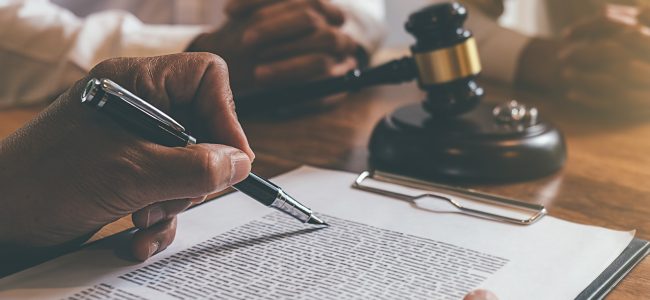BlogLine
Show Your Work! Massachusetts Appeals Court Holds Expert’s Opinion Insufficient in Legal Malpractice Case
4/17/23

By Paul Boylan and Ryan Giggi
In Abdulky v. Lubin & Meyer, P.C., decided on March 28, 2023, the Massachusetts Appeals Court disposed of a professional malpractice case by invocation of the principle that expert disclosures used on summary judgment must be admissible at trial. The Court specifically held that expert disclosures must be competent and must adequately describe a reliable methodology by which the expert reached the offered expert opinions. Because the plaintiffs’ expert disclosure and supplemental affidavit failed to sufficiently show that the methodology of the work was reliable, summary judgment was granted.
Abdulky is a legal malpractice claim arising from alleged medical malpractice in which the arm of a child was amputated and in which the plaintiffs’ attorneys negotiated a $6 million settlement. The plaintiffs, the child’s parents, then alleged that their attorneys committed malpractice as to the settlement, alleging the attorneys failed to adequately develop facts as to this element of damages and failed to inform them as to these additional costs in settlement negotiations. The attorney defendants’ motion for summary judgment was denied in the trial court.
The Appeals Court reversed on the grounds that the plaintiff parents failed to put forth competent evidence of the alleged lost damages. In Massachusetts, as in other states, evidence on summary judgment must be admissible at trial. The expert evidence of damages in the record on summary judgment consisted only of the initial disclosure and supplemental affidavit of plaintiffs’ expert, an experienced medical malpractice attorney. Those disclosures stated that the expert was competent and that they had done research of comparable verdicts involving similar medical malpractice cases, plus their damages valuation based on their research and experience. The Appeals Court ruled that those disclosures were insufficient and not admissible because they did not describe the expert’s valuation methodology or describe in detail or how the expert applied that methodology to reach their opinions. Even though the Appeals Court reasoned with the assumption that the expert used a reliable methodology, this failure to so describe that methodology was fatal to admissibility. The law firm was granted summary judgment based on the failure to provide admissible expert evidence as to damages, an essential element to any claim.
The concurrence describes the result as “a cautionary tale” for the plaintiff’s bar, and there is a lesson for the defense bar as well. Expert disclosures in malpractice cases and all others should err on the side of overinclusion, affirmatively describing the methodology by which an expert reached any conclusions. The Opinion does not say or allude to what more was needed to be shown in the expert affidavit, but an expert in this type of case at a minimum would want to show and explain in detail all of their work and methodology. The Opinion reasons that an expert affidavit should anticipate the full range of possible Daubert challenges to admissibility. In this instance it is not clear what further information would have established reliability of the opinion, though one could reasonably surmise that a catalog of the cases and verdicts they reviewed, the jurisdiction and facts of each case, the damages awarded in each, and a calculation as to how they reached their conclusion would have significantly increased the chances of their affidavit being admissible. The expert might also have explained how their years of experience in valuation of malpractice cases and verdicts was applied to reach their opinions.
Here and in other cases where an insufficient settlement is alleged to result from alleged malpractice, including communications failures by the attorneys, the required methodology of expert opinion is not well established. The expert opinion by definition involves the interaction of many facts, and is not a straightforward instance of professional opinion as is used in asking why a patient has a cold or whether a contract is enforceable. The field or topic is not exact or easily defined. A reliable and admissible expert opinion is needed however for a plaintiff to prevail on summary judgment and at trial in any case of this sort, and challenges to the sufficiency of an expert opinion are likely best made in the trial court rather than on appeal. Hence, the value of over-inclusion; partial credit may be awarded for an incorrect answer for showing your work.
If you have questions or would like additional information as to this topic, please contact Paul Boylan at paul.boylan@fmglaw.com or Ryan Giggi (ryan.giggi@fmglaw.com) in our Boston office, or your local FMG attorney.
Share
Save Print